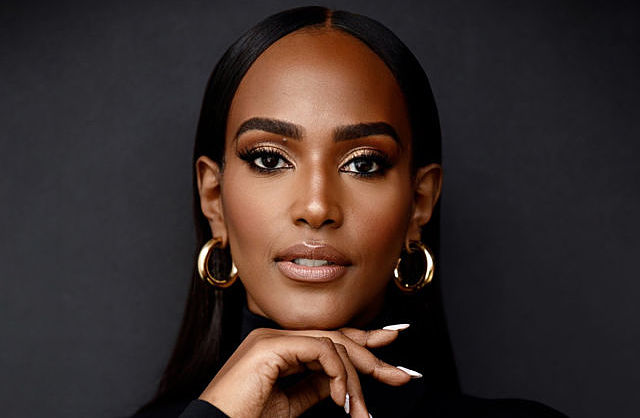 “We’re back at a place where we have to create the new generation of superstars,” says the newly promoted label chief. (Photo: Ethiopia Habtemariam by Bonnie Nichoalds)
“We’re back at a place where we have to create the new generation of superstars,” says the newly promoted label chief. (Photo: Ethiopia Habtemariam by Bonnie Nichoalds)
This story appears in Rolling Stone‘s 2021 Future of Music issue, a special project delving into the next era of the multibillion-dollar hitmaking business. Read the other stories here.
To reinvent Motown Records, Ethiopia Habtemariam wants to start by going back in time. “I remember being a really young kid and seeing how massive acts like Boyz II Men were, and how that was indicative to what Motown was like,” Habtemariam muses, noting that in the Sixties and Seventies, the label was a formidable launchpad for black artists to become global superstars.
Back then, Motown really had everything — a film and TV division, a comics team. Habtemariam, who has just been promoted to the company’s CEO and chair after spending the past decade ushering the legacy label out of the shadows, first as a VP and then as president, has a vision to bring that cross-platform entertainment brand back.
Under her leadership, Motown will find new revenue streams for its 50-year-old catalog of hits from the likes of the Jackson Five and the Supremes, while also seeking to break fresh rappers and R&B stars. It’ll continue to court partnerships with hot new labels like Quality Control and Blacksmith Records, two important relationships brokered by Habtemariam that have brought Migos, Lil Baby, Lil Yachty, Vince Staples, and City Girls on board. Hip-hop is the most commercially successful genre of music right now, and Motown is eager to take center stage in breaking the biggest rappers of tomorrow.
Habtemariam, an Atlanta native who started her music career as an intern at Atlanta-based LaFace Records more than two decades ago, is also well aware that she’s only the second woman, after Epic Records’ Sylvia Rhone, to lead a major record label — and so she’s got a second, unofficial job as a role model for the entire record business, which is undergoing seismic racial change for the first time in its own ranks. “I’m hoping this opens up the door for a lot more that happens for people that look like me, and have done the work, and deserve to grow to this level in their careers,” Habtemariam says.
In her new role helming Motown, she will also report directly to Universal Music’s CEO Sir Lucian Grainge, becoming one of only a handful of executives at the giant music company to do so. While Habtemariam doesn’t foresee hip-hop’s pull diminishing any time soon, she says the pandemic has underscored the wide swaths of music released every day online, and she expects a wider range of music to stick to the charts than before — meaning that Motown might expand its classic “Motown Sound” as well. “I think there’s going to be more cream rising to the top, great songs,” she says. “I don’t think it’ll be just one sound that dominates. People are looking for music that speaks to every bit of their emotions and what they go through.”
The seasoned exec believes the streaming era highlights, rather than threatens, the importance of labels to young artists. “It’s really competitive,” she says. “But our industry as a whole is in such a healthy place now. We’re back at a place where we have to create the new generation of superstars.”
—
Join the conversation on Twitter and Facebook.

























